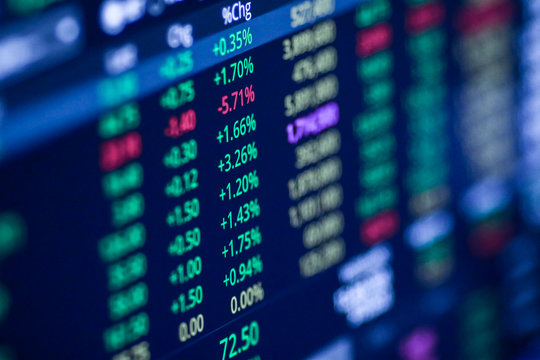These 8 names are the most widely held stocks in the world

Summary:
- The eight most widely held individual equities in the world, according to Bank of America, are ASML, TSMC, Microsoft, Samsung Electronics, HDFC Bank, Amazon, Sony, and NVIDIA. Long-only funds added $10.1 billion to their exposure to active equities in July, favoring the industrial sector. The amount of money Americans were exposed to industrials increased by $30.3 billion, but overall active exposure did not change. Long-only funds have shifted their asset allocation from bonds to equities, demonstrating growing optimism about the global economic cycle.
Bank of America strategists disclosed on Tuesday the eight most widely held individual stocks globally. Based on the percentage of relevant funds holding these stocks, the top holdings are TSMC (94%), Microsoft (NASDAQ:MSFT) (87%), Samsung Electronics (KS:005930) (85%), HDFC Bank (81%), Amazon (NASDAQ:AMZN) (77%), Sony (NYSE:SONY) (75%), NVIDIA (NASDAQ:NVDA) (75%), and ASML (AS:ASML) (75%).
In July, as global equities saw a 1.5% rally, long-only funds globally increased their active equity exposure by a total of $10.1 billion, according to BofA’s analysis of 7,746 funds managing $30 trillion.
Industrials emerged as the favored sector for the month. Funds notably boosted their active exposure to Europe by $10.5 billion, with $7.8 billion directed specifically towards Industrials.
In the U.S., while overall active exposure remained relatively stable with a $1.2 billion increase, there was a significant $30.3 billion rise in exposure to Industrials, alongside a reduction in Consumer Discretionary and Tech holdings.
According to BofA, this shift aligns with historical trends, where the global Industrials sector typically outperforms during periods of economic upturn, as indicated by the rising Global Wave, the bank’s economic indicator that tracks the global business cycle.
Year-to-date, long-only funds have shown increasing optimism about the global economic cycle by reducing cash levels and reallocating from bonds to equities.
These funds have added a cumulative $58.4 billion to global equities, with the largest increases seen in Europe ($27.9 billion), the U.S. ($18.2 billion), Emerging Markets ($15.2 billion), and APxJ ($7.3 billion). This has more than offset the $10.2 billion reduction in active exposure to Japan, strategists point out.
